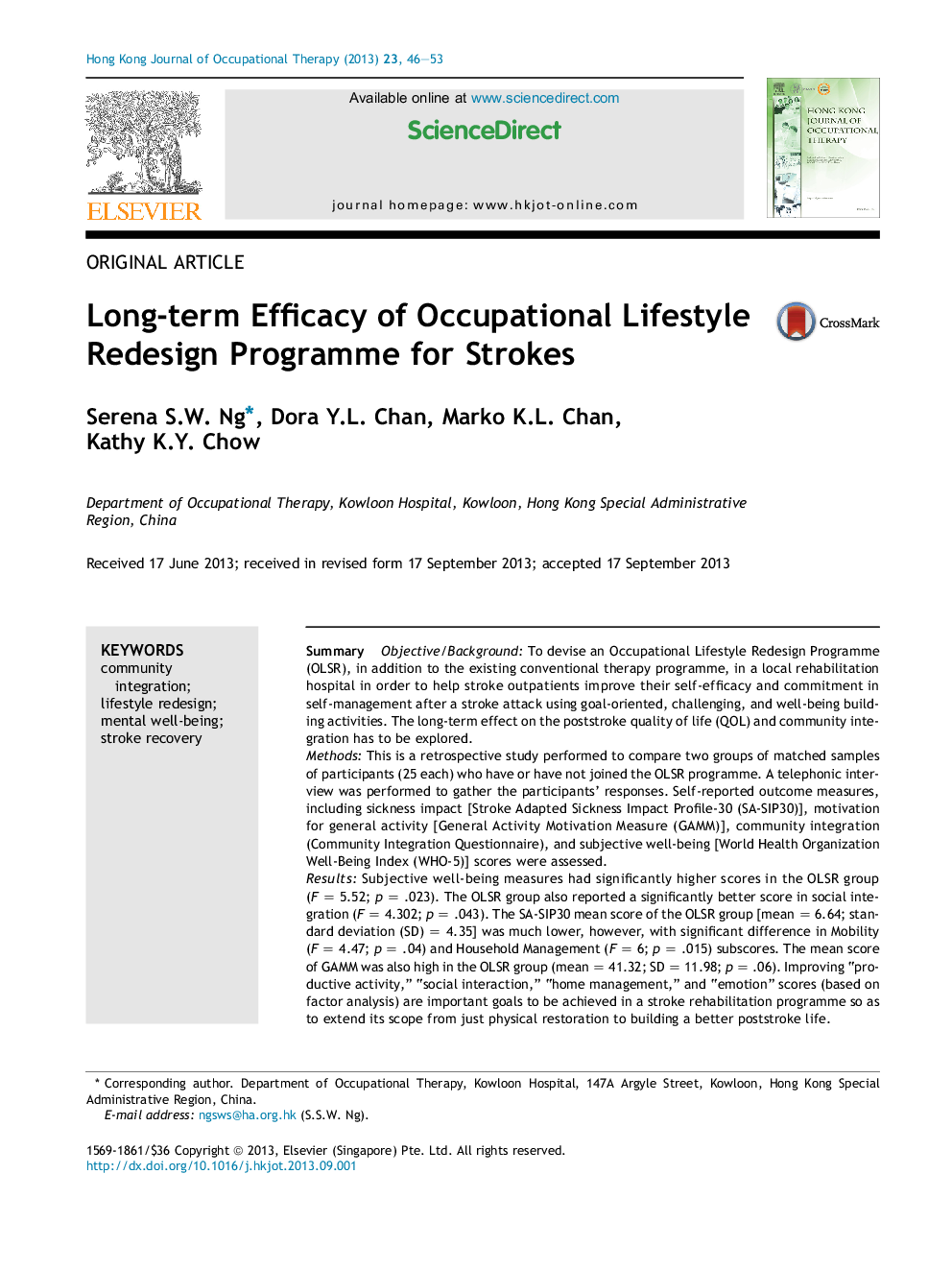| کد مقاله | کد نشریه | سال انتشار | مقاله انگلیسی | نسخه تمام متن |
|---|---|---|---|---|
| 2697386 | 1564907 | 2013 | 8 صفحه PDF | دانلود رایگان |

SummaryObjective/BackgroundTo devise an Occupational Lifestyle Redesign Programme (OLSR), in addition to the existing conventional therapy programme, in a local rehabilitation hospital in order to help stroke outpatients improve their self-efficacy and commitment in self-management after a stroke attack using goal-oriented, challenging, and well-being building activities. The long-term effect on the poststroke quality of life (QOL) and community integration has to be explored.MethodsThis is a retrospective study performed to compare two groups of matched samples of participants (25 each) who have or have not joined the OLSR programme. A telephonic interview was performed to gather the participants' responses. Self-reported outcome measures, including sickness impact [Stroke Adapted Sickness Impact Profile-30 (SA-SIP30)], motivation for general activity [General Activity Motivation Measure (GAMM)], community integration (Community Integration Questionnaire), and subjective well-being [World Health Organization Well-Being Index (WHO-5)] scores were assessed.ResultsSubjective well-being measures had significantly higher scores in the OLSR group (F = 5.52; p = .023). The OLSR group also reported a significantly better score in social integration (F = 4.302; p = .043). The SA-SIP30 mean score of the OLSR group [mean = 6.64; standard deviation (SD) = 4.35] was much lower, however, with significant difference in Mobility (F = 4.47; p = .04) and Household Management (F = 6; p = .015) subscores. The mean score of GAMM was also high in the OLSR group (mean = 41.32; SD = 11.98; p = .06). Improving “productive activity,” “social interaction,” “home management,” and “emotion” scores (based on factor analysis) are important goals to be achieved in a stroke rehabilitation programme so as to extend its scope from just physical restoration to building a better poststroke life.ConclusionThe positive effect of OLSR programme has been shown to be effective in filling the gap of psychosocial adaptation in conventional stroke rehabilitation programmes. The patients in the OLSR programme had improved motivation levels and predicted better QOL in long term.
Journal: Hong Kong Journal of Occupational Therapy - Volume 23, Issue 2, December 2013, Pages 46–53